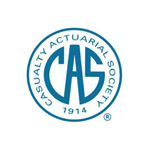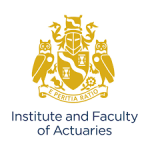The Insurance Commission is a government agency under the Department of Finance. The Commission supervises and regulates the operations of life and non-life companies, mutual benefit associations, and trusts for charitable uses. It issues licenses to insurance agents, general agents, resident agents, underwriters, brokers, adjusters and actuaries. It has also the authority to suspend or revoke such licenses. Visit www.insurance.gov.ph
Links
Government Agencies
The Philippine Social Security System is a social insurance program for workers in the Philippines. It is a government agency that provides retirement and health benefits to all enrolled employees in the Philippines with the exception of employees employed by the government which have the Government Service Insurance System (GSIS) as their social insurance program. Visit www.sss.gov.ph
The Bangko Sentral ng Pilipinas (BSP) is the central bank of the Republic of the Philippines. It was established on 3 July 1993 pursuant to the provisions of the 1987 Philippine Constitution and the New Central Bank Act of 1993. The BSP took over from the Central Bank of Philippines, which was established on 3 January 1949, as the country’s central monetary authority. The BSP enjoys fiscal and administrative autonomy from the National Government in the pursuit of its mandated responsibilities. Visit www.bsp.gov.ph
The Department of Finance (DOF) is the government’s steward of sound fiscal policy. It formulates revenue policies that will ensure funding of critical government programs that promote welfare among our people and accelerate economic growth and stability. The Department envisions that the effective and efficient pursuit of the critical tasks under its wings – revenue generation, resource mobilization, debt management and financial market development – shall provide the solid foundation for a Philippine economy that is one of the most active and dynamic in the world. Visit www.dof.gov.ph
Actuarial Organizations
The Society of Actuaries (SOA) is the largest professional organization dedicated to serving 22,000 actuarial members and the public in the United States, Canada and worldwide. The SOA's vision is for actuaries to be the leading professionals in the measurement and management of risk. The SOA is committed to providing basic education in the fundamental principles of actuarial science, advanced education, professional development and continuing education for practicing actuaries; conducting research to develop studies of historical experience and techniques for projections into the future, analyzing the actuarial aspects of public policy issues and providing the foundation for further expansion of the profession; and promoting high standards of professional competence and conduct within the actuarial profession. Visit www.soa.org
The Casualty Actuarial Society is an organization that comprise and develops actuaries skilled in the analysis, evaluation and management of the financial implications of future contingent events primarily with respect to general insurance, including property, casualty, and similar risk exposures. The purposes of the Casualty Actuarial Society are to advance the body of knowledge of actuarial science applied to general insurance, including property, casualty and similar risk exposures, to expand the application of actuarial science to enterprise risks and systemic risks, to establish and maintain standards of qualification for membership, to promote and maintain high standards of conduct and competence, to increase the awareness of actuarial science and, to contribute to the well being of society as a whole. Visit www.casact.org
The Institute and Faculty of Actuaries (IFoA) is the UK's only chartered professional body dedicated to educating, developing and regulating actuaries based both in the UK and internationally.The IFoA regulates and represents over 30,000 members worldwide, overseeing their actuarial education at all stages of qualification and development throughout their careers. The organisation sets examinations, continuing professional development, professional codes and disciplinary standards for its members.Under the IFoA’s Royal Charter it has a duty to regulate the actuarial profession in the public interest. This means that in carrying out its regulatory role, the IFoA’s foremost consideration is what is required to protect the public and how it can ensure that the public has confidence in the work of actuaries. This applies to all of its regulatory roles, for example setting the qualifications and admissions criteria, administering professional standards, developing materials to support and educate about professionalism and compliance with standards, operating a Practising Certificates scheme, investigating complaints about the conduct of members, and operating a disciplinary process. The IFoA’s policy and public affairs work seeks to inform and influence public policy, legislation and regulation to promote decisions and systems that serve the public interest. It does this by working with its members to promote the relevance and value that actuaries’ expertise and long-term perspective can add to the understanding and good management of risks across society and over time. Visit https:www.actuaries.org.uk










